This is Hằng Thiên, the owner of an organic farm in Cam Ha, Quang Nam, Vietnam. She produces specialty teas and cosmetics made from a variety of dried fruits and herbs, including kumquats, lemongrass, Thai basil, ginger and turmeric. She is an influencer in her local community and dreams of establishing her farm as a model and inspiration for organic farming, sustainability and economic growth.
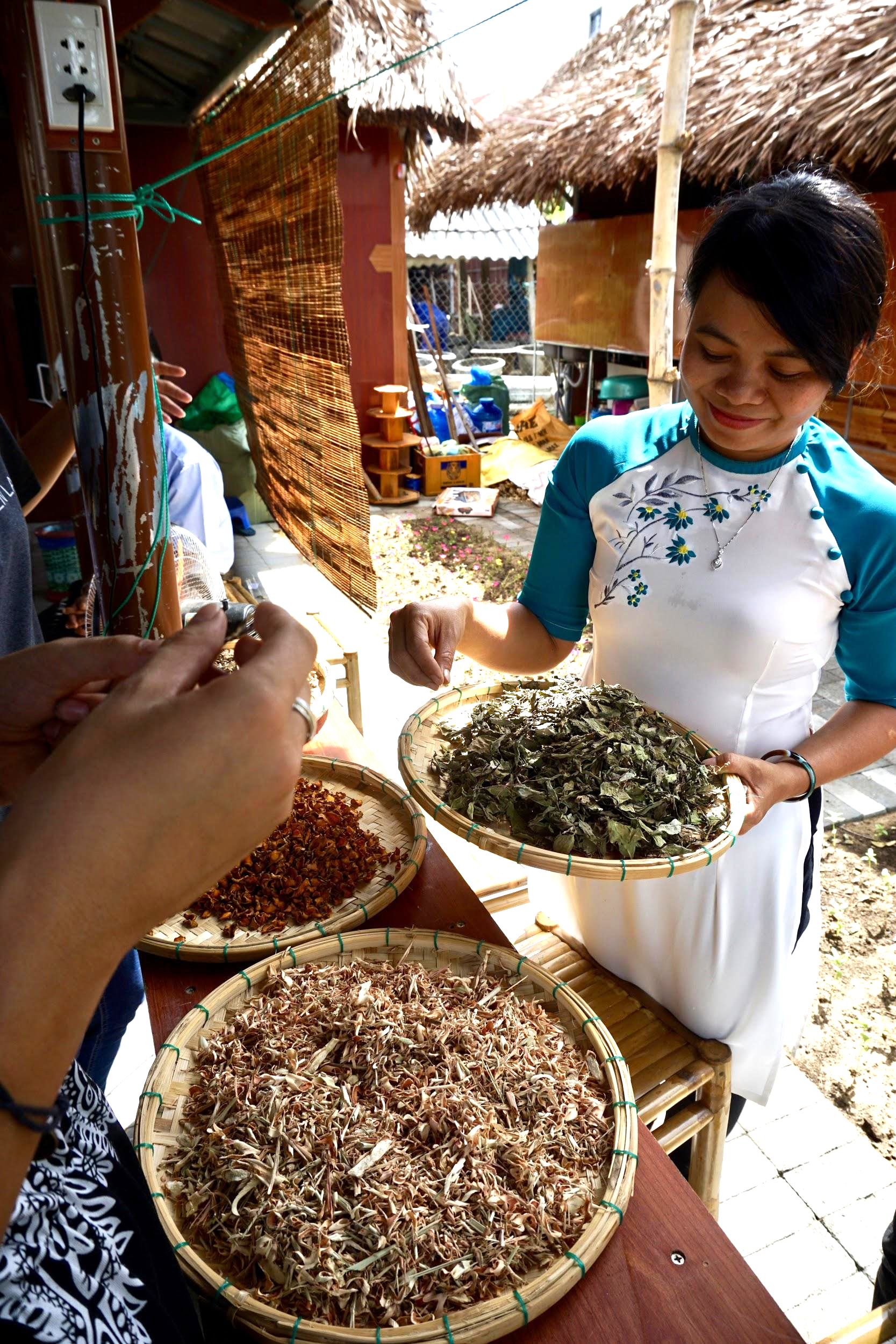
Hằng is also a beneficiary of the Women’s Empowerment project in Central Vietnam (WECV), an RSA funded programme which connects smallholder farmers with solar dryers to add value to their production. Earlier this year, the WECV donated a solar dryer to Hằng to support her vision for an empowered future and to learn from her experience to maximise future impact.
This is the WECV story.
I met Hằng in July for a site assessment for WECV when she was still using traditional sun drying methods to make tea. She would lay out her products in woven baskets on the ground for multiple days, and wait for her goods to dry. While this method was generally effective, her products were exposed to dust and air pollution and were sometimes damaged as a result. Unexpected rain and wind also contributed to the loss of some of her products. Hằng told me that she had also tried using an electric dryer, but that the flavor of the herbs was lost and the cost was too high to justify.
I saw an amazing potential for Hằng to benefit from using a solar dryer to make her specialty teas. Solar dryers are simple yet effective, protecting products from harmful UV light, wind, rain, pollutants, dust, and bacteria/fungus growth. They also reduce drying times by about 50% and retain nutrients more effectively when compared with traditional sun drying. Hằng was optimistic about the benefits of the dryer, particularly the clean energy aspect of the design, but was still unsure what effects it would have on the quality of her goods. To allay these fears, we donated the dryers to her farm and provided a training session for Hằng and her team to learn how to use the dryer and sample their own products in it.
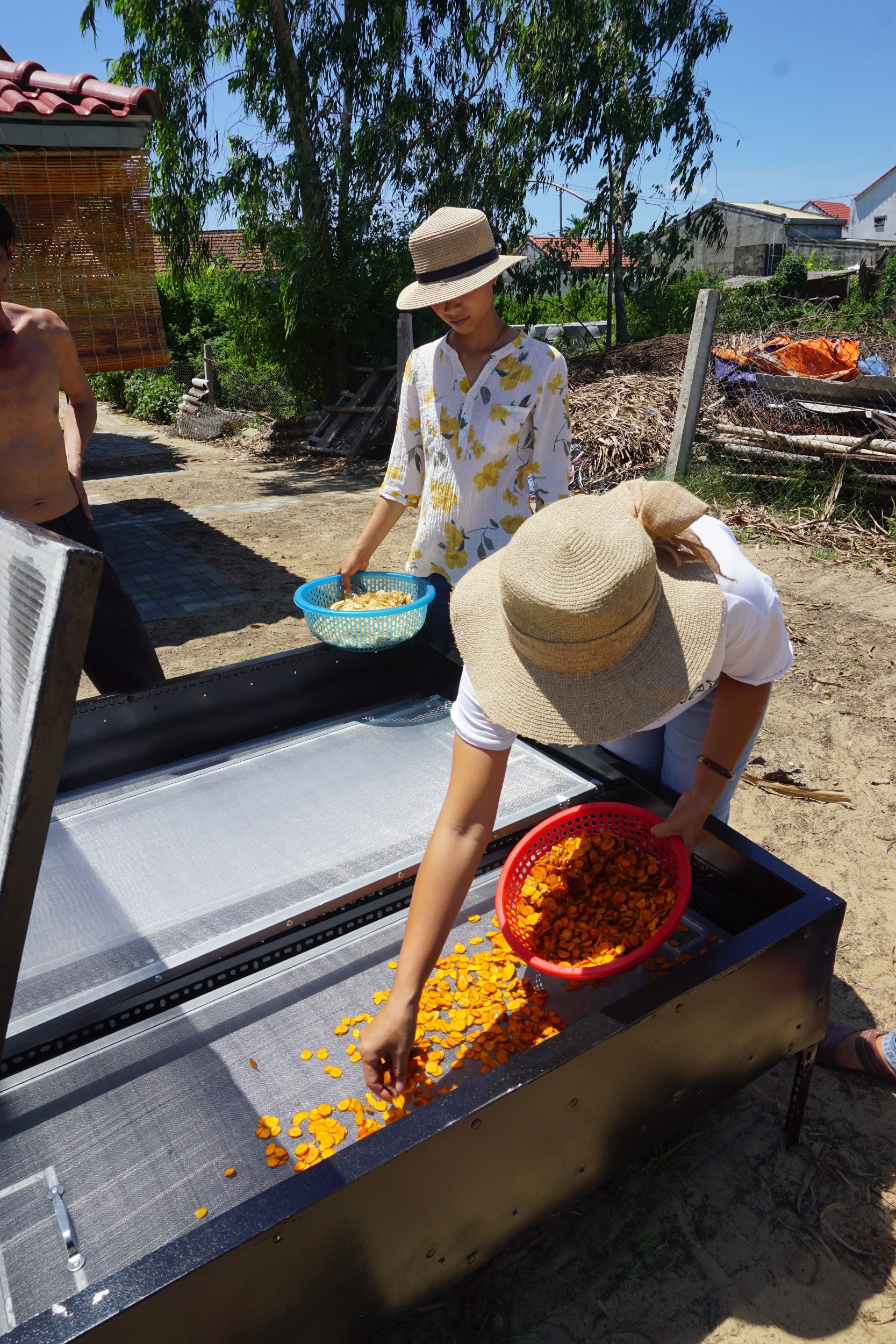
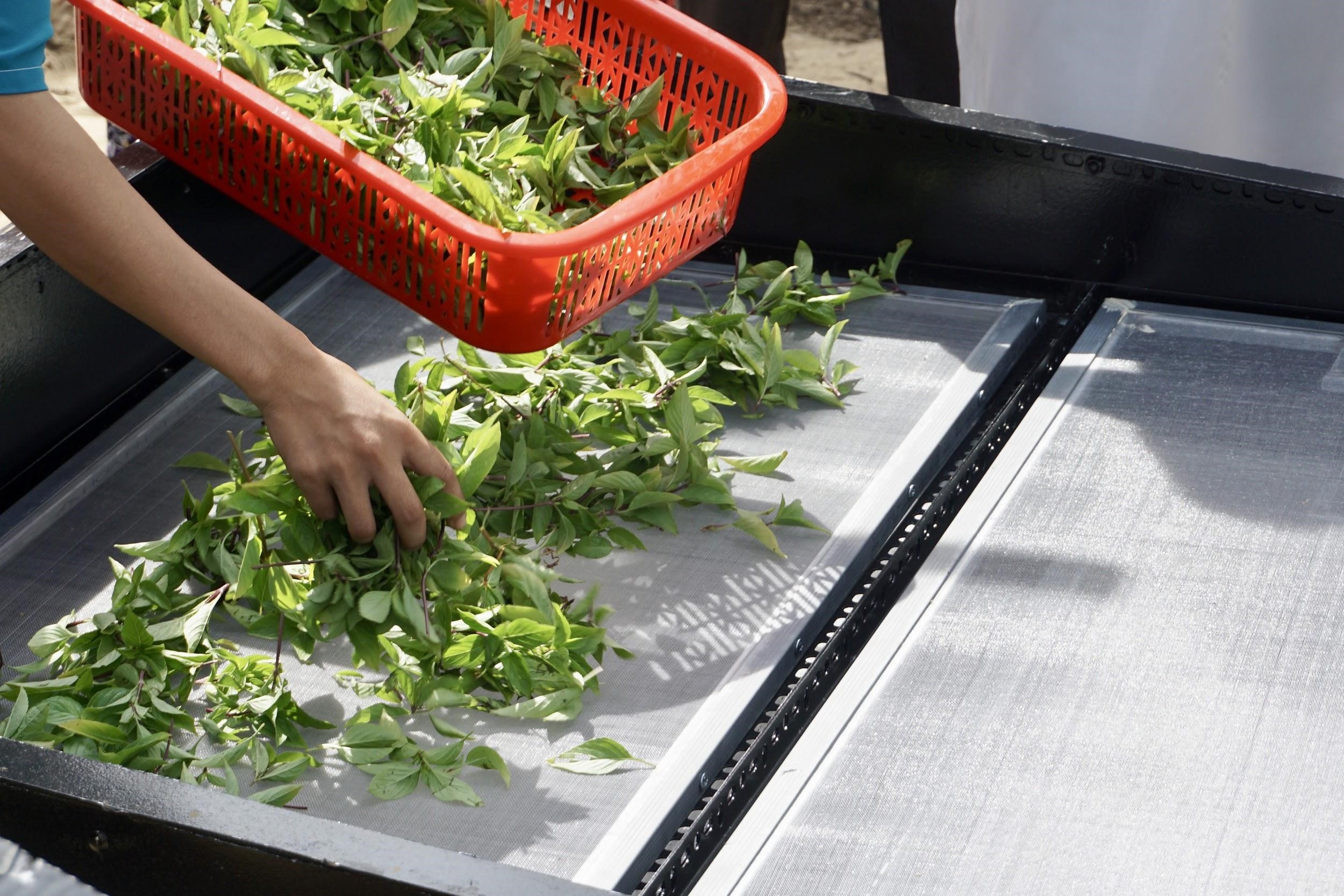
We installed the dryers early in the morning, and tested a range of goods from ginger to turmeric, mint and basil. By the end of the day, all the products had dried to about 12% of their original water content, enough to reduce the water activity within to eliminate the risk of bacteria and fungus growth. Hằng was delighted by the results of the dryer, particularly the quality of the finished products and reduced drying times. She pointed out that the simple design would make it easy for the workers on the farm to use and even for her community to build themselves.
With this in mind, Hằng and I collaborated to host a workshop on her farm that would help us to spread the use of solar dryers. With local farmers, government officials and small business owners in attendance, the workshop opened up a discussion on the benefits, uses and potential of the dryes to transition from common sun-drying and electric-drying processes to cleaner and more sustainable methods. It also provided a detailed guide for how to build a solar dryer. Hằng demonstrated to attendees how to use the solar dryer and testified to its quality and efficiency, speaking with confidence and a sense of ownership.
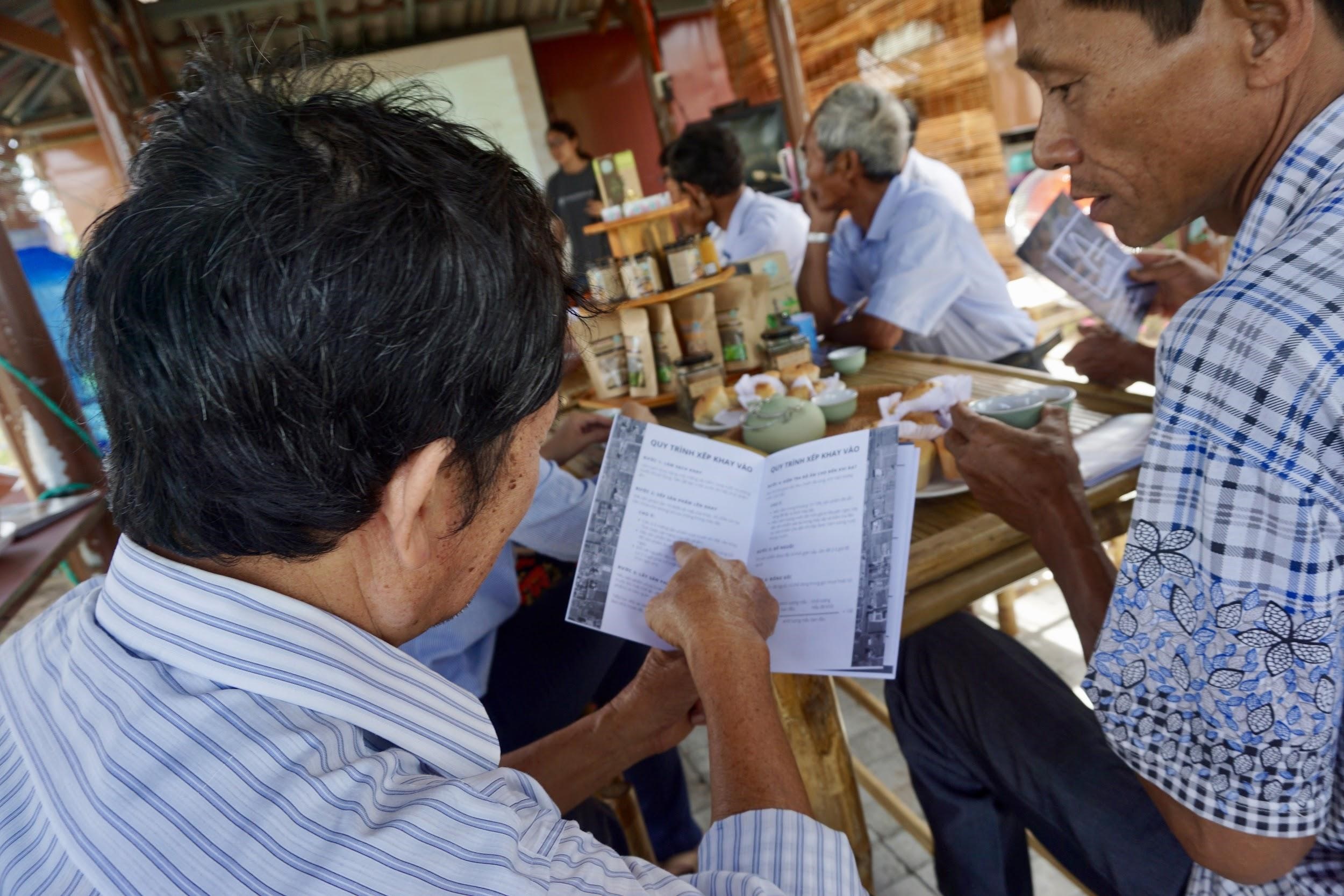
Beyond the WECV’s vision to empower women and spread sustainable agri-tech tools, the WECV used this workshop to better understand the barriers and worries of local farmers in investing in solar dryers. A community approach to the project has always been at the heart of the WECV’s mission, and as the project continues, we are using the feedback from programme beneficiaries and workshop attendees to adapt our processes to meet the unique needs of each community we work with.
Since the installation in August, Hằng and her team have been using the dryers whenever there is sun, producing 2-3 kg of dried tea a week. Kilo for kilo, the markup on selling premium herbal tea compared with selling fresh herbs comes out to about 480%, meaning that Hằng and her team can sustain their livelihoods outside of harvest seasons and can reduce their post harvest losses to almost zero. They sell their teas in the nearby tourist area, Hoi An Ancient town, as well as at specialty markets and local shops in Hoi An and Da Nang, where customers are willing to pay premium prices for quality goods.
Two farmers from a nearby organic farm, who joined the workshop at Hằng’s, have also built their own solar dryer to produce tea and dried vegetables. They too are selling their dried goods locally and in the booming tourist market area of Hoi An.
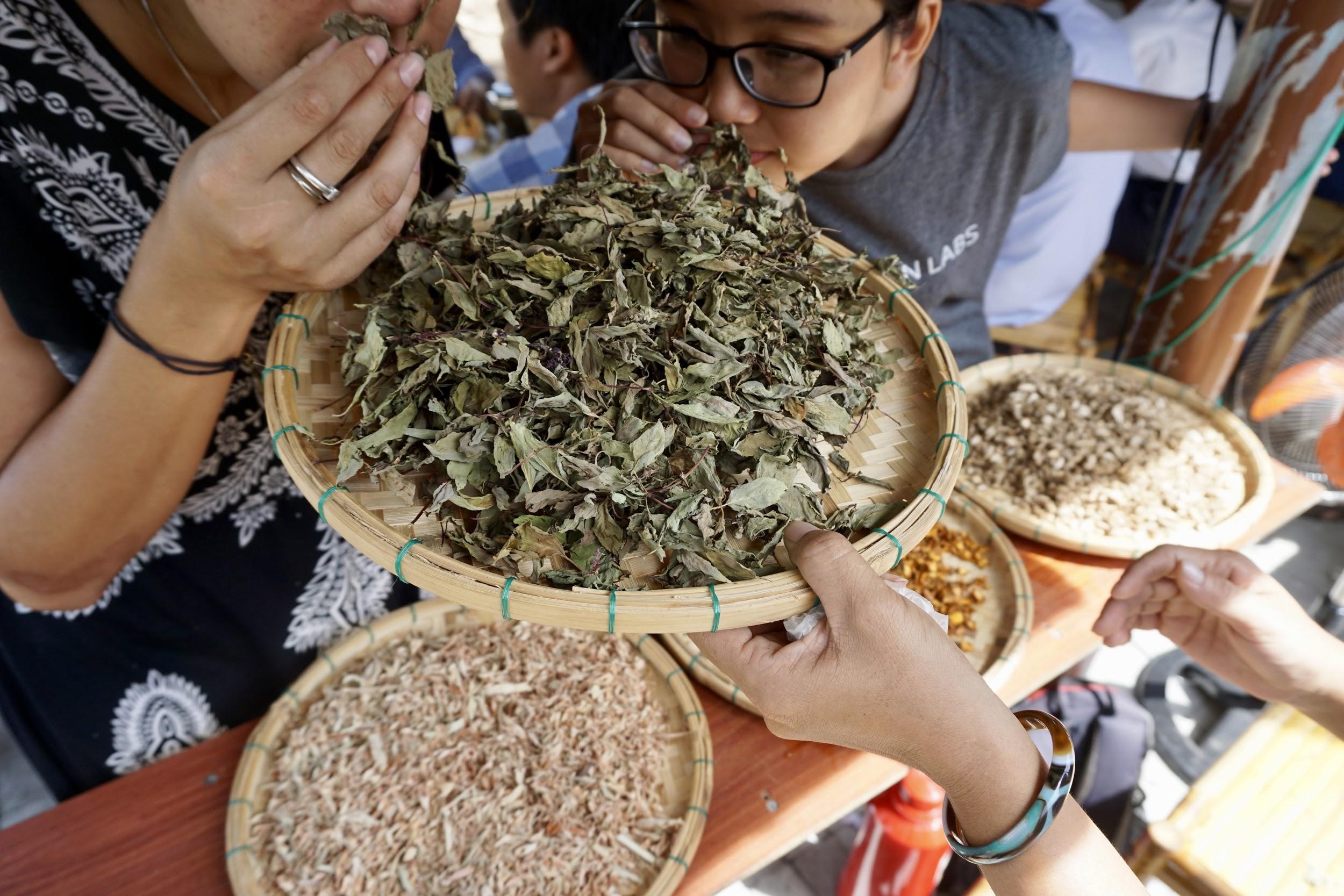
To date, the WECV has worked with three other smallholding farms over the last three months to install a total of 4 dryers, host 4 workshops and support the empowerment of 23 women working in agriculture. As well as continuing to support these farms in their transition to solar drying, the WECV will use the next months to collect data on the volume of goods dried, drying kinetics, waste reduction rates and income increases from selling dried products. With this information, the WECV will look to scale it across the region via a social franchise model and through microfinance.
You can learn more about this project and our impact so far at https://sites.google.com/view/antiemvietnam-English
Alison Kwan FRSA is based in Vietnam. If you would like to contact her about her project, you can email at [email protected]

Be the first to write a comment
Comments
Please login to post a comment or reply
Don't have an account? Click here to register.